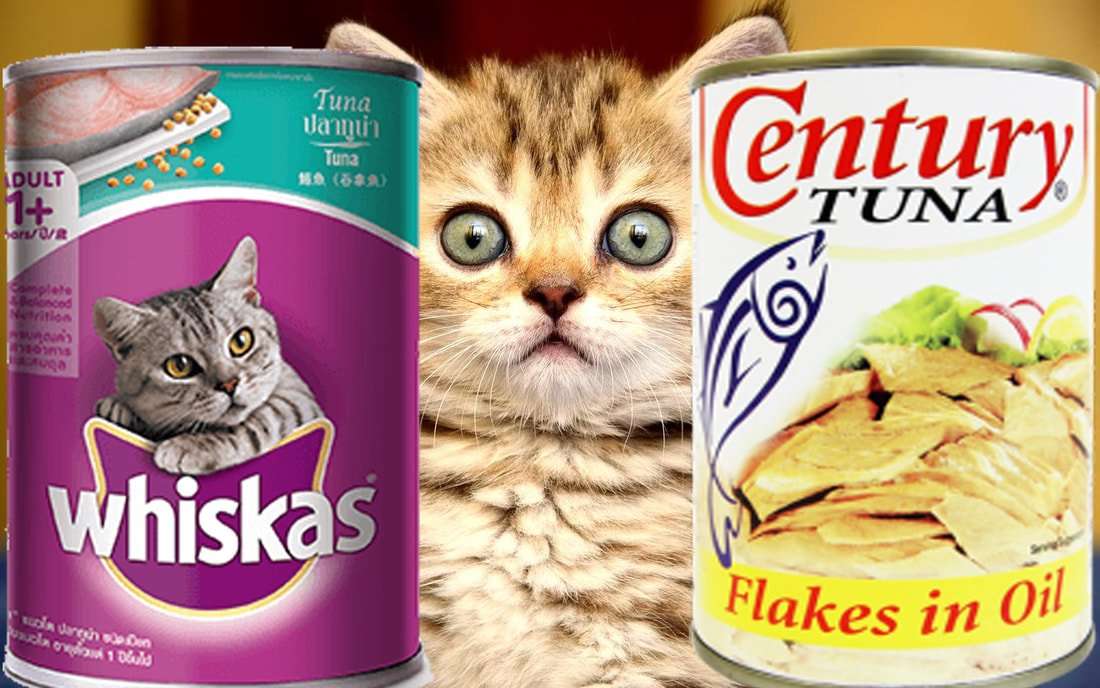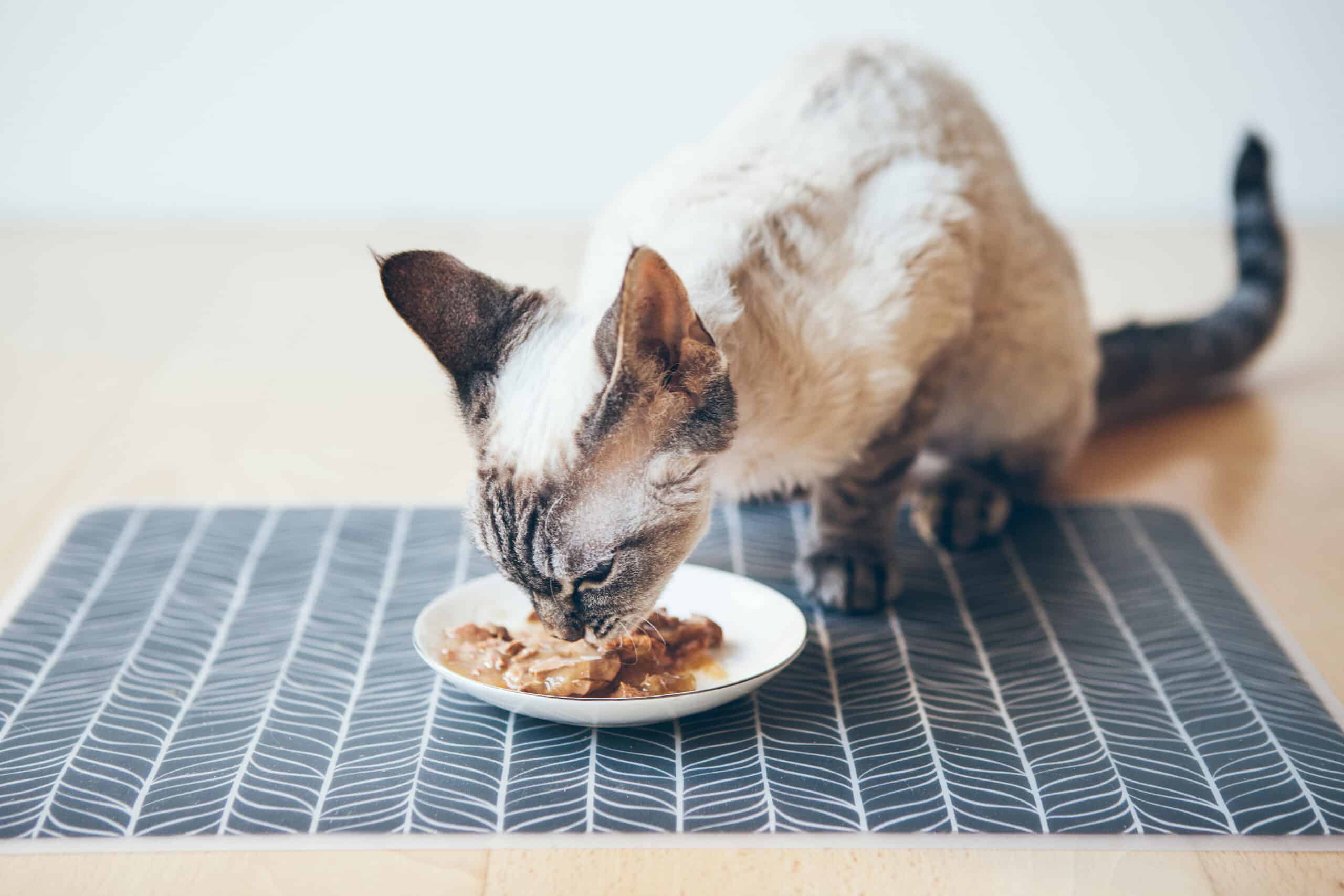The High Concentration Of Unsaturated Fats
Tuna is rich in unsaturated fats such as omega-3 fatty acids, which are actually healthy for humans, but when it comes to cats, its a different story. Suppose your cat is consuming copious amounts of unsaturated fat. In that case, even when its the good type of fat, they are at high risk of health conditions such as pancreatitis or steatitis .
Mercury Poisoning In Cats
One of the biggest concerns with tuna consumption is mercury poisoning. This can happen to both humans and cats, regardless if the tuna is raw or not.
Tuna is high in mercury, which happens to be a highly toxic metal. Some signs of mercury poisoning in cats are lack of coordination, poor balance, dizziness, and weird behavior. If you notice these symptoms to your cat after eating tuna, you should bring it to the vet. It can either be due to thiaminase or mercury, which are both life-threatening.
Aside from that, consistent mercury consumption can lead to kidney disease. Its said to increase the kidneys protein levels that will become a burden to the vital organ.
Although a small serving of cooked tuna wont hurt your cat, repetitive feeding can. You shouldnt make tuna a major part of your cats diet. Tuna-flavored cat kibble is usually safe since it has controlled amounts of real tuna.
Can Cats Eat Raw Fish
It’s a hard no-no. Raw fish is unsuitable for cats as it contains an enzyme called thiaminase that destroys thiamine which is an essential B vitamin for your cat. If cats have too little thiamine, they might experience some severe health problems.
What’s more, raw fish is usually a breeding ground for bacteria which, like in humans, can cause food poisoning in your cat. Take E. coli and salmonella as examples of two hazardous bacteria that can affect felines and humans.
Following the same logic, you might wonder, “can my cat eat sushi?” Actually, no, primarily because of its high raw fish content. But, on the upside, that does mean there’s more for you, though.
Don’t Miss: How Old Is A 10 Year Old Cat In Human Years
Can Cats Eat Anchovies
Anchovies are a great source of healthy unsaturated fats for your cat. Use caution here as these fatty fish can contribute to weight gain, especially if they’re preserved in oil. If you bought canned varieties in oil, make sure to drain as much oil as possible. For brined anchovies, rinse off as much of the salt as you can.
Another good thing about anchovies is that they’re somewhat lower on the food chain and contain less mercury and other heavy metals from ocean pollution.
Presence Of Mercury In Tuna

You probably heard or read somewhere that tuna contains trace amounts of mercury. Mercury is a naturally occurring element, but its the mercury thats created and/or redistributed during industrial pollution that becomes dangerous.
Mercury and mercury byproducts fall out of the air and settle in our planets water sources. And as this harmful element settles, it begins to be eaten by smaller aquatic organisms such as plankton. The plankton are then eaten by larger fish and so on.
Tuna are natural, long-lived predatory fish with a spot near the top of the oceans food chain. And as logic dictates, these big fish have much higher mercury concentrations than other smaller ones have.
Read Also: Why Do Cats Nibble On You
Not All Cats Can Stomach Tuna
Cats can also be allergic to fish. The Merck Veterinary Manual lists fish as a top food allergen for cats, noting that common signs of an allergic reaction include itching, hair loss, red or swollen skin and red bumps. Cats with food allergies may also vomit and experience diarrhea, gas and a loss of appetite if they encounter an ingredient they’re sensitive to. If you notice any of these symptoms, call your veterinarian right away to determine the causes and create a treatment plan.
Tuna Water Can Help Increase Hydration
Cats are notorious for not drinking enough water and the prevalence of chronic kidney disease in cats has been estimated as high as 3.0%! But cats also have a low thirst drive and according to Hills Science Diet because cats have a low thirst drive they dont feel the need to drink water very often. If your cat is dehydrated, you may not know it until she develops a problem.
Mixing in some tuna water to your cats existing water bowl can be a great way to increase your cats interest in water and improve their overall hydration. Its not something that youd want to do every day but it can be a great occasional treat to increase hydration.
You May Like: Cat Gorging Throwing Up
Its Ok To Give Cats Tuna As A Treat
Tuna is not bad its a great source of protein, selenium, and a few select vitamins and minerals. It also provides some moisture to a cats diet. If you open up that can of tuna and your cat comes running, dont feel guilty letting them have some .
However, you probably shouldnt give it to them every day because cats can get mercury poisoning if eaten in excess, just like us. Further, you dont want to give them too much and spoil their appetite to eat their regular food .
Too many calories can lead to obesity, which in turn can cause diabetes and other illnesses.
Tuna Is Not Nutritionally Balanced
Cats have specific nutritional requirements. There are critical nutrients that a cat needs in order to remain healthy. Unfortunately, tuna alone will not provide these nutrients. Commercial cat foods usually contain added ingredients such as vitamins, amino acids, and minerals to make the food nutritionally balanced and complete for the cats. This means that the commercial cat food has all the needed essential nutrients in the right balance and the kittys specific life-stage.
Don’t Miss: How To Tell Kitten Sex
Is It Okay To Give Cats Tuna Juice
Yes, it is okay to give cats tuna juice once or twice a week. However, you should not forget that mercury toxicity concerns still call out for us to inform you it is not a staple food for your cats diet.
In recent years,; tuna has always been a point of concern for every parent or owner because of the microplastics that could be found in tuna.
Microplastics are the result of plastic breaking down to microscopic size in the ocean. There is a high possibility that these particles might are consumed by fish, which means tuna.
No matter how much your cat seems to be obsessive over tuna, make sure you dont make It a habit in their diets. Replace their food with something more healthy, add more treats but giving your cat something that has the high possibility of worsening your cats health should never come easy to you just because its easily accessible.
Keep the contents of food in check.; Make sure you have had a conversation about what should be fed to your car with the veterinary who knows about the health conditions that your cat has.
Being a cat owner doesnt come easy, you need to make it work.
Can Cats Eat Salmon
Salmon is indeed nutritionally decent for cats and contains many vitamins that benefit felines. If you’re choosing to feed your cat salmon, make sure it is always cooked but isn’t smoked or mixed with any herbs and spices that may upset your cat’s stomach. You should avoid canned salmon as it often contains too much salt and preservatives that are bad for your cat.
Avoid commercial cat food that includes salmon. Most salmon used in commercial cat foods is farm-raised, which means the fish are often exposed to high levels of pollutants and toxins. Besides, because the fish are reared in often overcrowded conditions, they’re fed antibiotics to limit the spread of disease.
If you’re still going to give your cat a salmon treat, do so rarely and cook it yourself. The best options include grilled, poached, and baked salmon without salt and extra spices.
Also Check: Are Croton Plants Toxic To Cats
Can Cats Eat Raw Tuna
Tuna is not on ASPCA list of toxic foods, but raw or undercooked meat is. Raw fish can have Salmonella and E. coli that can be harmful to both your cat and you. You will have to take your pet to the emergency vet if they get salmonella poisoning.
Be sure to cook tuna thoroughly before feeding any to your cat. We may like eating sushi occasionally, but its too much of a risk to feed it to your pet.
Does Tuna Have A Role In Increasing Palatability Of Foods

Tuna can also be used , as a topper to increase the palatability of other foods. It may be sufficiently aromatic, to stimulate and encourage an appetite, in an otherwise inappetant cat.
Be aware of the phenomenon of food aversion however. This is when a cat , feels nauseous, and is inadvertently offered a specific type of food at the same time. Given the feeling of sickness that cat is experiencing, it will refuse the food. Furthermore, in the future, the cat will also have learnt to associate that particular type of food with the sensation of nausea; thus developing a potentially long-term, food aversion.
Read Also: Are Rose Leaves Toxic To Cats
How Should I Feed Tuna To My Cat
You must first consult your veterinarian before you feed your cat tuna. They can give you appropriate serving sizes, advice for preparing the tuna, and let you know how often you can give tuna to your individual cat.
If your vet says you can try giving your cat tuna, give them a very small amount at first and see how they react. If they have symptoms of an allergic reaction or get sick, stop giving your cat tuna.
Tuna should be only a sometimes-treat for your cat, and its best to mix it in with your cats regular food. A full can of tuna is far too much for a single serving. One teaspoon of tuna a few times a week should be enough. It should not make up a significant portion of their diet.
You can serve your cat tuna from a can or fresh tuna. If its from the can, as mentioned earlier, make sure its real tuna in water with no additives or chemicals. You can use the water on your cats regular food to encourage them to eat, though this should not be done for a long period of time, and youll need to wean your cat off of it eventually.
If you want to serve your cat fresh tuna, make sure its boneless and has no added spices or ingredients that may be harmful to your cat.
Does your cat ever get tuna as a treat? What other kinds of food does your cat like to eat? Let us know in the comments below!
Related Articles:
How Much Tuna Is Too Much
With a strong delicious smell and an enjoyable flavour, most cats will enjoy eating tuna. However, offer too much tuna to your cat and you may be making a rod for your own back! Some cats, if regularly offered tuna, may prefer its taste so much, that they then begin to turn their nose up at their regular foods. They can become picky eaters or may inconsistently eat their main source of food. They may also gain weight.;
In an ideal world, only 10% of a cats daily intake of calories would come from tuna. The remaining 90% and thus the bulk of the diet, would be their complete and balanced, appropriate life-stage food.;
Don’t Miss: Tuxedo Cat Lifespan
Is Tuna Safe For Cats To Eat
Yes, tuna is safe for cats in low quantities and at a low frequency. The tuna must be high quality fish and you should avoid canned tuna. Although cats can have tuna in low quantities, it’s always best to opt for other fish with lower amounts of mercury as this can lead to serious health issues in your cat, such as poisoning which can be fatal.
Therefore, can cats eat tuna? Yes, with certain conditions. But, the real question is should cats eat tuna. The answer is no, not when there are much better options that won’t lead them to health issues. Tuna isn’t recommended for cats, however they can tolerate it from time to time.
With this being said, the answer isn’t as straight forward as we would like it to be. There are pros and cons of feeding your cat tuna, and this will depend on the quality of the tuna, the quantity and frequency in which you feed them tuna and your cat’s health history.
This is why in this article we’re going to dive a little deeper into the subject and talk about tuna’s nutrition, pros and cons, and lastly, how to feed tuna to your cat safely! We also encourage you to read our article about if cats can eat raw fish.
Should You Worry About Sodium
When it comes to our own nutrition, sodium is a pretty big deal. High sodium diets in humans have been connected to high blood pressure and increased strain on our cardiovascular system.
But is this the same case for cats?
Probably not. At least according to veterinarian Jennifer Coates who reviewed dozens of studies on salt intake and felines only to find that So while we have to watch our salt intake, it appears that we dont have to do the same for our cats.
Recommended Reading: Baking Soda Bad For Cats
How Tuna Can Affect Cat Nutrition
A well-balanced meal plan for cats includes protein, essential fatty acids, vitamins, minerals, and other nutrients. When your kitty eats too little or too much of certain nutrients, health complications can arise.
Tuna on its own is not nutritionally balanced. For example, tuna has too much unsaturated fat and is not supplemented with Vitamin E or other antioxidants. Therefore, tuna should not be fed as your cat’s primary source of nutrition.
If tuna is part of your cat’s meal plan and you notice them acting out of sorts, consider taking them into your veterinarian for a wellness visit it’s always a good idea to get a baseline reading to ensure nothing serious is going on.
How Much Is Too Much Tuna To Give A Cat
I found this seafood calculator that lets you put in your weight and stats to determine how much you can safely eat per week to avoid Mercury poisoning. I entered 9 lbs and under age 14 and it calculated that for tuna, its safe to eat up to 1 half an oz serving per week! That is about 1 tablespoon per week, so very very little!
Granted, its for humans but it still gives you a pretty good idea that you should stick with an extremely small amount for your cat.
Read Also: How To Get Matts Out Of Cat Hair
Can A Kitten Eat Tuna
Because of all the nutrients that promote growth, it may be tempting to give some tuna to a small kitten. However, the risks seem to outweigh the benefits. A tiny kitten is at even greater risk for steatitis, mercury poisoning and seizures.
A half grown adolescent cat may be able to handle small quantities as an occasional treat and the tiniest squirt of tuna juice might help a recently weaned kitten get used to the idea of eating on their own. Otherwise, a kitten is better off getting their vitamins and nutrients from other sources.
To Find Out If Your Kitty Can Eat Avocado
Thoughts On Homemade Cat Food Recipes

Good Recipes!
Why on earth would you add GARLIC POWDER to a cats food? Garlic can make your cat really sick!Some of these menus are really well made, otherwise! However, never use canned tuna since tuna contains a lot of heavy metals.
Also Check: How Much Is A Norwegian Forest Cat
Can Cats Eat Tuna In Oil Lets Discuss
Over the years, we have seen tuna making speculations about how healthy it is. And should we let our pets have it or not?
Has it generated fuss around and anybody hasnt found any answer? An absolute yes.
Cats can have tuna in oil once in a while. But the quantity should be less is recommended, oil is sticky and can make your cat dizzy and lethargic.
Today, I have brought the same questions but who knows we may end with different answers?
Lets get in to find some.
What Cats Can Eat
Cats are carnivores and need meat. Talking with your vet about the cat food you provide and following the directions on the label will help ensure your cat’s diet is balanced and your cat stays healthy. An occasional taste of cooked boneless beef or brown rice can be an OK treat. But it’s best to keep it small and infrequent.
Read Also: Baking Soda Harmful To Cats
Make Sure Its Bpa Free
BPA is a type of plastic thats commonly used in food packaging- especially in metal cans and bottle tops. While theres a lot of controversy around BPA and the potentially harmful effects it has its probably best to avoid or limit the amount of BPA your cat is exposed to.
Over the last several years, concerns around BPA have become more prominent and its a lot easier to avoid. Still, make sure the tuna youre purchasing isnt the bottom of the barrel and is at least BPA conscious. You can learn more about Wild Planets position on BPA here.